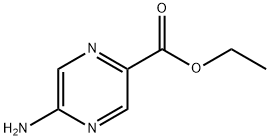I've been driving for a while now and I'm always confused about the different types of gas. Is premium gas the same as plus gas? I've noticed they have different prices and I'm not sure if my car needs one over the other. Can someone explain the difference and help me make the right choice? Appreciate any help!!!
Is premium gas the same as plus gas?
Related Encyclopedia
- 8032-32-4
- unspecified
- 0
- All (98)
- China (98)
- (98)

- 64742-82-1
- C6H14
- 86.18
- All (98)
- China (98)
- (98)
- 64742-16-1
- 0
- All (35)
- China (13)
- (35)
- 8030-30-6
- CnH2n+2(n=5~8)
- 0
- All (98)
- China (98)
- (98)

- 64742-81-0
- 0.00000
- All (0)
- China (0)
- (0)
- 68476-85-7
- C3、C4
- 0
- All (0)
- China (0)
- (0)
- 64742-61-6
- 0
- All (2)
- China (0)
- (2)
- 64742-51-4
- 0
- All (5)
- China (3)
- (5)

- 64742-48-9
- 0.00000
- All (4)
- China (3)
- (4)

- 64741-66-8
- 0.00000
- All (1)
- China (1)
- (1)
Related Products More >
-
- 8009-03-8
- CNY Request For Quotation
-
- 8009-03-8
- CNY Request For Quotation
-
- 8032-32-4
- Request For Quotation
- 100ml
-
- 8032-32-4
- Request For Quotation
- 500g
-
- 8032-32-4
- Request For Quotation
- 25kg
-
- 8032-32-4
- Request For Quotation
- 1kg
-
- 8032-32-4
- Request For Quotation
- 100kg
-
- 8032-32-4
- Request For Quotation
- 1ton


 沪ICP备2021018848号-5
沪ICP备2021018848号-5


When discussing fuel options, it is important to understand the differences between premium gas and plus gas. Both are higher octane fuels, but they serve different purposes and have distinct characteristics. To make an informed decision, drivers need to know the specific requirements of their vehicles and the benefits of each type of fuel.
Octane Ratings and Engine Requirements
Premium gas generally has an octane rating of 91 or 93, which is essential for high-performance engines. These engines are designed to operate at higher compression ratios, and the higher octane rating helps prevent engine knocking. Plus gas, with an octane rating of around 89, is also higher than regular unleaded but is not as effective in high-performance engines. Using the wrong type of fuel can lead to reduced performance and potential engine damage.
Additives and Engine Protection
Both premium and plus gas contain additives to clean and protect the engine. Premium gas often includes more advanced additives that can provide better engine protection and performance. Plus gas also contains beneficial additives, but they may not be as effective as those in premium gas. These additives help reduce engine deposits, improve fuel efficiency, and enhance overall engine performance.
Practical Considerations and Health Implications
From a practical standpoint, using the correct type of fuel is crucial for maintaining engine health and maximizing performance. High-performance vehicles require premium gas to operate efficiently and safely. For mid-range vehicles, plus gas may be sufficient, providing a balance between performance and cost. It is important to check the vehicle's owner manual to determine the recommended fuel type.
Conclusion and Recommendations
In conclusion, premium gas and plus gas are not the same. Premium gas has a higher octane rating and more advanced additives, making it suitable for high-performance engines. Plus gas, with its slightly lower octane rating, is appropriate for vehicles that do not require the highest octane fuel. Understanding the differences between these fuels can help drivers make informed decisions and ensure their vehicles run efficiently and safely.
When it comes to fuel options, many drivers wonder if premium gas is the same as plus gas. While both are higher octane fuels compared to regular unleaded, they are not exactly the same. The primary difference lies in their octane ratings and additives.
Octane Ratings and Performance
Premium gas typically has an octane rating of 91 or 93, depending on the region. This higher octane rating helps prevent engine knocking in high-performance vehicles that require it. Plus gas, on the other hand, usually has an octane rating of around 89. While it is still higher than regular unleaded, it is not as high as premium gas. This difference in octane rating means that premium gas is better suited for engines that are specifically designed to run on high-octane fuel.
Additives and Benefits
Both premium and plus gas contain additives designed to clean and protect the engine. However, the specific additives and their concentrations can vary. Premium gas often contains more advanced additives that can provide better engine protection and performance. Plus gas also has beneficial additives, but they may not be as effective as those in premium gas.
Case Study and Application
For example, in high-performance sports cars, using premium gas is essential to prevent engine damage and ensure optimal performance. The higher octane rating helps the engine run smoothly and efficiently. In contrast, plus gas might be sufficient for some mid-range vehicles that do not require the highest octane rating but still benefit from the improved performance and engine protection.
Solution and Conclusion
In summary, while premium gas and plus gas are both higher octane fuels, they are not the same. Premium gas has a higher octane rating and often contains more advanced additives, making it suitable for high-performance engines. Plus gas, with its slightly lower octane rating, is still a good option for vehicles that do not require the highest octane fuel. Understanding the differences between these fuels can help drivers make informed decisions about which type of gas is best for their vehicle.